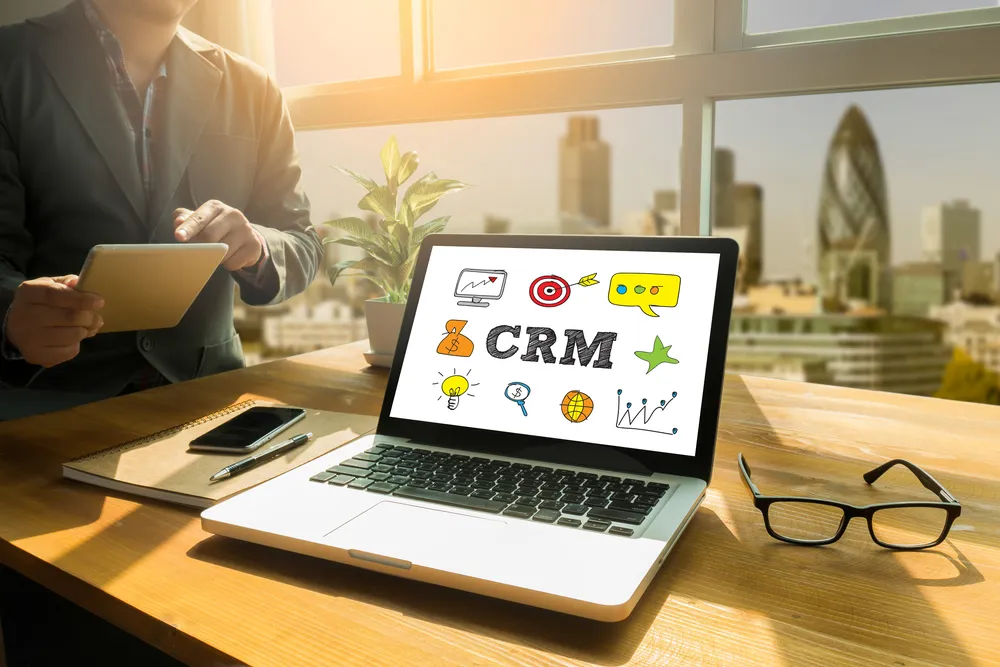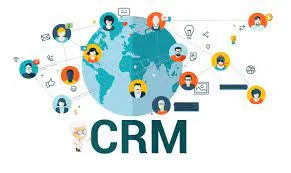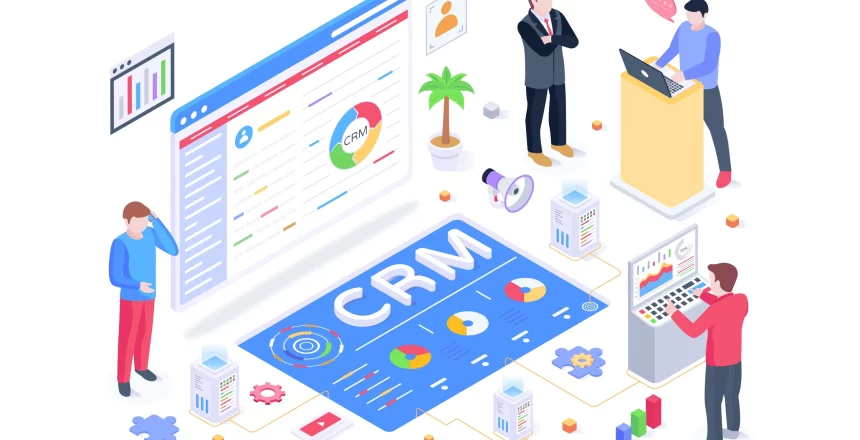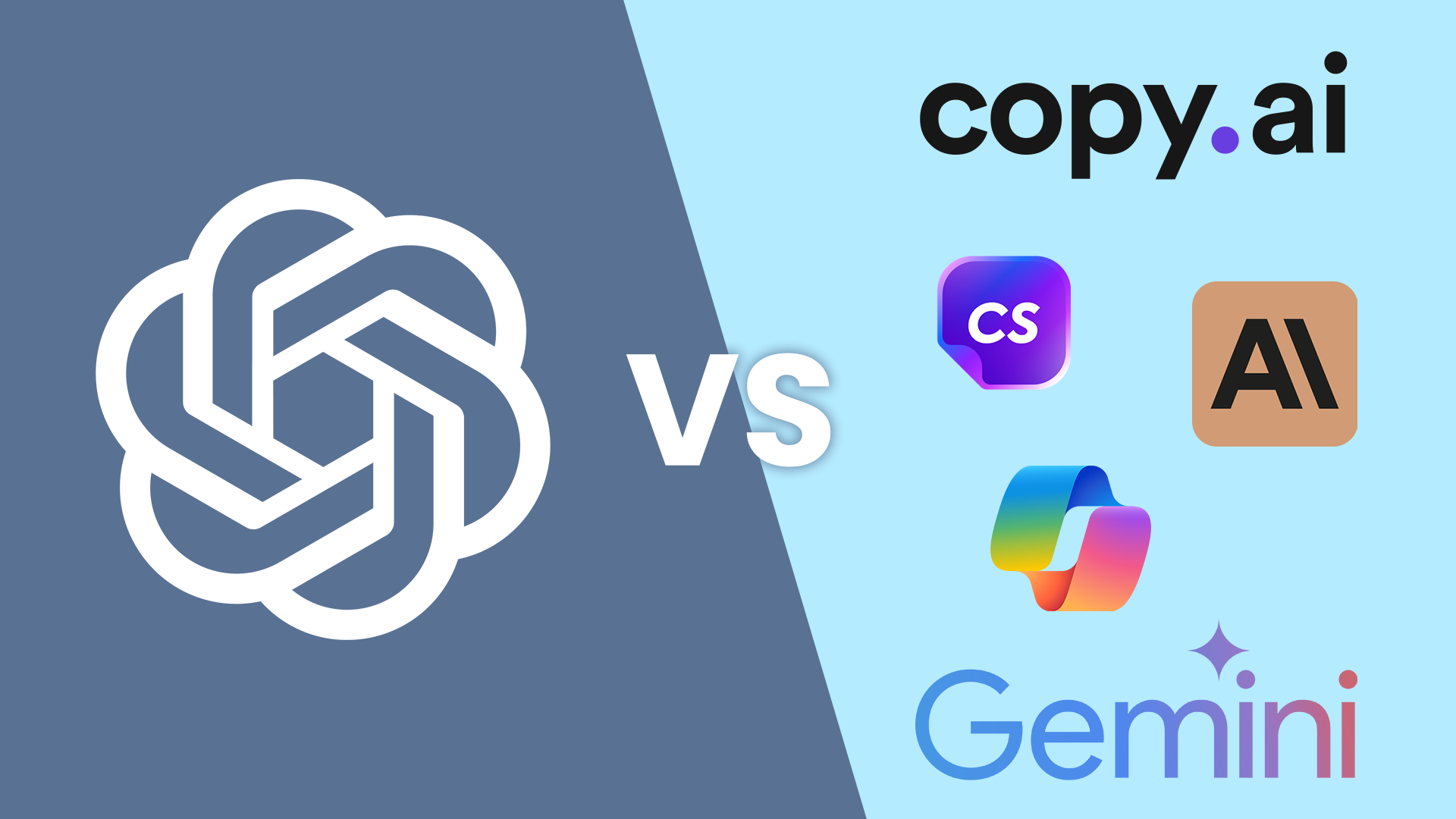CRM, which stands for Customer Relationship Management, is an invaluable tool in the business world. Implementing one can help you manage your customer base more efficiently and build better relationships with clients.
But how to choose a CRM system? This article will introduce you to some popular CRMs available on the market today and discuss the benefits of using CRM for your business.
 Source business.com
Source business.com
Many different software programs can be used as a CRM solution.
Table of Contents
Choosing CRM Software: A Buyer’s Guide
Serious businesses need serious business solutions! The number of options available on the market is huge, and it’s important to be thorough when looking at all of them.
What should I look for in a CRM system?
The first thing to look for in CRM software is the company’s size. If you have a small business with less than 100 employees, you may not need advanced customer segmentation and forecasting features.
However, if your business has more than 1000 employees, your CRM software must offer these features to keep up with the requirements of mounting your business.
Another feature that can be helpful is integrations; you can export data from one program and import it into another seamlessly without any hassle.
Lastly, make sure that whichever CRM solution you choose has mobile capabilities so that wherever they are or what device they’re using, customers will always feel like their needs are being fulfilled.
1. Marketing
With the right CRM solution, your company can be more successful and efficient in every aspect.
It offers email templates that allow employees to send personalized messages or attachments without writing their subject lines.
Competition tracking so you know who’s ahead of schedule on a project against the deadline.
Sales forecasting helps with planning future projects based on current performance trends throughout an organization’s portfolio, allowing them to take advantage when opportunities are waiting!
2. E-commerce
The advanced CRM software has built-in e-commerce functionality, while others allow simple third-party integration. The most reliable approach to do this is normally by accessing the API that will manage it all in one place!
3. Reports/dashboards
CRM software is a great way to manage your sales and customer data. Make sure you find the right product for what kind of information you need, as some only contain reporting features while others offer more robust dashboards with live updates in real-time!
4. Call center
CRM can be an excellent tool for businesses of any size, but it is essential to have call center capabilities to offer truly outstanding customer service.
Third-party integrations exist that connect CRMS with low-cost alternatives available on the market today; however, if your business depends heavily upon customer interactions through phone calls, then adopting one of these more expensive options may make sense instead!
5. Workflows
A good CRM needs project management, and most high-quality software has built-in workflows.
However, it’s important to know that the extent to which these tools are customizable varies on an individual product, so if you want something specific or easy, then look elsewhere because not all products will suit your needs equally well.
The benefits of having a good project management tool can be seen across different industries since they help with task tracking and the organization, which is essential when dealing with large projects!
How to choose a CRM for emails?
If you’re a busy business owner, the chances are that you spend most of your day on emails.
This can lead to major inbox overload and hours wasted every day just trying to catch up.
You are required to obtain the best CRM for your business to help organize all those pesky messages into one place so that they won’t overwhelm your day anymore!

What are the factors to be considered before choosing a CRM tool?
In the current era, businesses are adopting new technologies to stay competitive.
The CRM tools have been proven to be highly beneficial for business growth and customer retention.
1) Know your business objectives
The first step is to know what you want from a CRM tool and how it can help you achieve your goals.
If you don’t set any goal, there’s no use in investing time and money in that software.
You need to define your ultimate objective by asking yourself questions like “What do I expect from my chosen CRM solution?” or “How would I like to see my business grow?”.
2. Seamless accessibility and scalability
The best CRM systems are not just convenient but also cloud-friendly and affordable. They offer multiple platform access, easy cross-device compatibility for whenever or wherever you want it!
3. Not limited to sales
The decision to choose a CRM is an important one. Your choice must complement how you work and work well with the rest of the team as we go through each step in our sales process, from receiving leads to closing deals!
A CRM system must be flexible enough to adapt and evolve with the ever-changing business world.
Every aspect of your company should benefit from it, but most importantly, customer service needs special attention because people are more likely than before to start having trouble reaching out for help if there isn’t an option other than emailing them directly, which can take hours!
4. Customization and reporting
Within every business, departmental procedures can differ considerably. Hence a quality CRM should be highly customizable to meet every business needs.
If the sales system can be customized right down to the level of every user, it can establish a valuable asset to the business. You require software that can provide insights into your data through reporting across the board, enabling you to increase your profitability.
What features should you look for when choosing a CRM?
When seeking a CRM, you should first look for tracking leads.
A good CRM system will have the capability of keeping tabs on all your contacts and interactions with them, whether it be phone calls or emails.
This way, you can easily track what has been done and what needs to be done for each customer.
The second thing you should look for in a CRM is integrations with other important platforms, such as accounting software, marketing automation systems, or even email service providers.
1. Lead management
Leads are important because they help turn potential customers into a sale.
You can manage your leads by identifying them and then scoring how close or far away from becoming an actual customer the lead is in their buying cycle, but there’s also another way to use these opportunities.
If you have enough seemingly dead leads sitting around on-hand for weeks (or months), it might be worth redistributing those individuals with other members of staff who could work better given different skill sets needed when converting consumers onto paying; subscribers!
2. Real-time data
CRM software can extract real-time data from devices, applications.
These are just some of the advantages of pulling real-time data:
It assists you in making better-informed marketing decisions about bidding price and placement of online advertising.
You get an immediate snapshot of market demand to update your marketing plan to produce better outcomes.
3. CRM analytics
CRM analytics offer a wealth of information to help you better understand your customers.
They show the types and quantities being distributed to them and their opinions about these products/services to make more informed decisions on what else we should distribute or not!
Watch for these detailed analytics in a CRM:
- Customer segmentation that is easy to read and comprehend.
- Clear profit and loss data to assist you in determining your ROI.
- Informative web analytics that illustrates customer website use and behaviors.

CRM selection criteria
When looking for a CRM, there are so many options that it can be overwhelming.
There is no one-size-fits-all solution to customer relationship management (CRM) software.
Here is an overview of some key things to consider when choosing a CRM:
- It should have a data-driven dashboard that presents all your activity in a single window.
- It should have automated lead capturing, lead assigning, lead scoring and lead follow-up.
- It should have sales tracking.
- It should have calendar management, so it will assist you in scheduling the next task.
- It should have sales orders, quotations, and invoice management.
- It should have SMS, Email, and VoIP integrations for better communication.
- It can automate your day-to-day task.
CRM evaluation criteria
When you are looking to implement a CRM system in your business, you must be aware of the criteria to look for when selecting a CRM solution.
Here are some key aspects to keep in mind:
– The ability to track and monitor leads generated from web forms, social media platforms, and other sources is crucial. You want something that doesn’t limit how many leads can be tracked at once.
– Make sure the CRM allows for easy lead distribution across departments and job roles within your company.
This will make communication more cohesive and ensure no one falls through the cracks concerning follow-up steps needed after the customer or prospect has made initial contact.
– When developing a business, companies use far more solutions than a mere CRM platform.
In this way, ensure that your new CRM allows the integration options with other services you have already successfully applied (i.e., email, document storage, marketing automation, business intelligence, call tracking, survey tools, etc.).
Conclusion
Choosing CRM software can be overwhelming, especially when you’re unsure which factors to consider. NPEC offers a wide selection of CRM tools developed by experts in the field and tailored for businesses like yours.
We hope this article has given you some guidance on what to think about before making your decision so that it will be easier to find the perfect solution for your business today!
Contact us if required for further information or assistance with choosing the best CRM software for your business– we look forward to hearing from you soon!
Reference: https://www.emailvendorselection.com/guide-choosing-right-crm/.
FAQs
1. How do I choose a CRM for my business?
What is CRM? The acronym stands for Customer Relationship
Management, which is the art of managing your clients and customers.
It can be overwhelming to figure out what system works best for you when there are so many options out there.
Here are some questions to ask yourself before making your choice:
Which features are most important to me? Do I need mobile capabilities? Does it integrate with other software I use, like email marketing or Google Analytics? What is my budget? What tools will help me get the most out of this investment in my business’s success and profitability over time?
2. What makes a good CRM?
There are different CRMs for different industries – some are more general, while others have functions designed specifically for retail or manufacturing.
It’s important to find an affordable and efficient solution because if you’re spending too much time on your current tools, then you’re not focusing on what’s important – your customers.
What is the perfect CRM to use for your business?
The answer largely depends on what you do and who you do it for, but there’s one thing that can’t change: a well-built system must include customer service, sales automation, analytics, and reporting.




